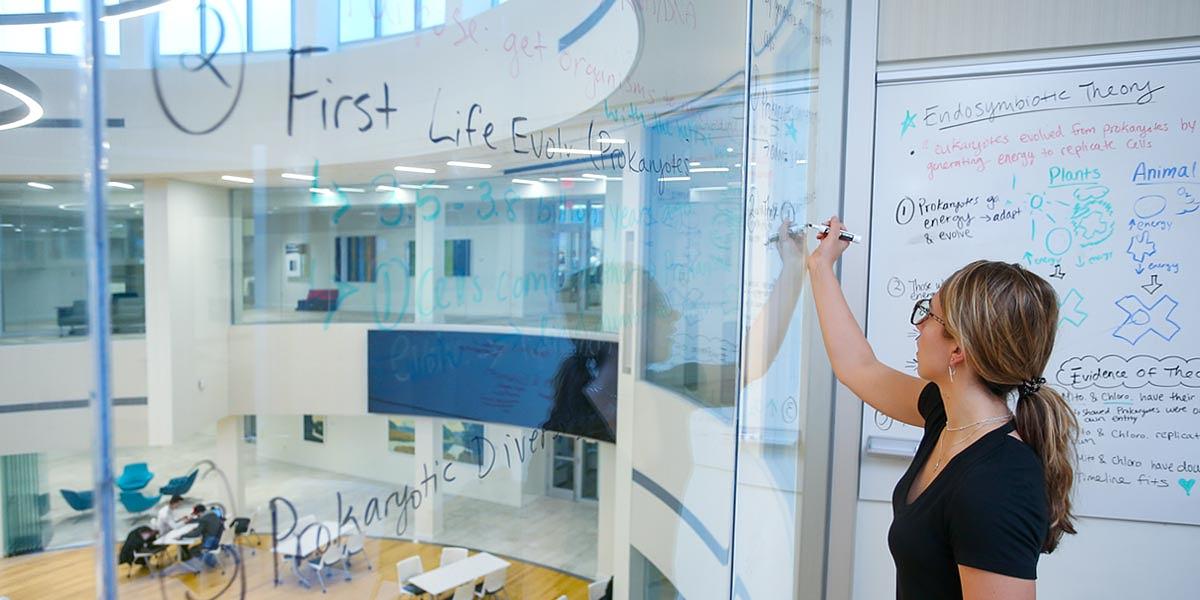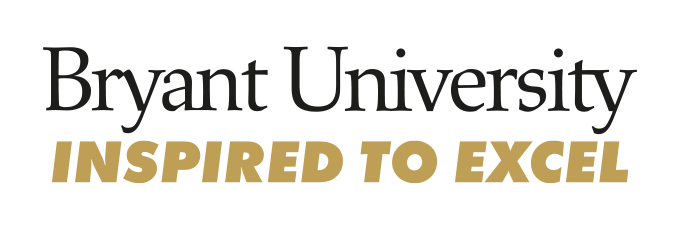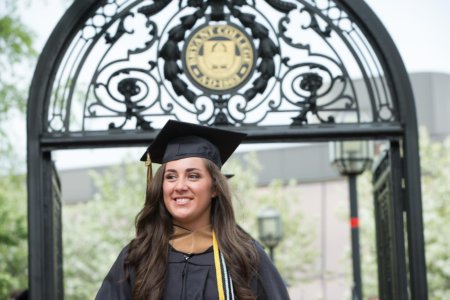Over the past few years, the job market has only grown more competitive. Many promising graduates are left vying for opportunities post-pandemic – where having a degree alone is not going to cut it.
At the College of Arts and Sciences at Bryant University, you can stand a winning chance at competing in the workforce due to the balanced education you will receive. This is because Bryant prides itself in fostering the development of ethical, global citizens that are driven by empathy, curiosity, and collaboration.
The College of Arts and Sciences offers two types of degrees: a Bachelor of Science (with majors in Actuarial Mathematics, Applied Economics, Applied Mathematics and Statistics) and a Bachelor of Arts (with majors in Chinese, Communication, Economics, Global Studies, history, Literary and Cultural Studies, Politics and Law, Sociology, or Spanish).
These degrees span the humanities, social sciences, mathematics, and the natural and applied sciences. Whichever path you choose, each will have its own impactful ways to promote intellectual discovery, creativity, and critical thinking.
Every graduate from The College of Arts and Sciences will be armed with the skills needed for professional success such as effective written and oral communication, critical thinking, ethical reasoning, diversity awareness, and information literacy. Some of the courses that will help sharpen these skills are Introduction to Health Communication, How Language Works, Crisis and Risk Communication, Mathematics of Finance, Insurance, and Pensions, as well as Actuarial Mathematical Models and Stochastic Calculus.
The Communication programme being ranked in the top 4% nationwide is a reflection of the quality of education the college provides – the very kind that not just prepares students for their careers, but their civic lives too.
A vital part of professional success is the ability to solve real-world problems – which is why the Communication programme at Bryant has been designed with this in mind.
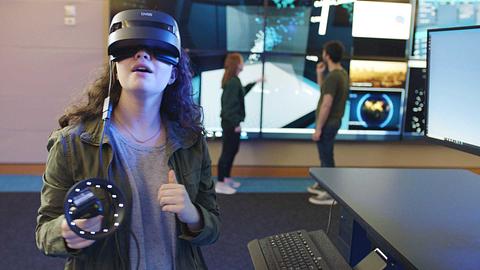
To learn how to compete and make an impact in a complex, global environment, head to the town of Smithfield, Rhode Island. Source: Bryant University
“Theories are put into practice in this major through the use of experiential learning, whether it’s designing web pages for companies or even producing personal social media feeds or podcasts,” says Chris Morse, Professor of Communication and Department Chair. “If you were to walk in a classroom with digital communication, you might be seeing students working on creating specific content for social media feeds like TikTok or Twitter, or looking at analytics and assessing how effective the digital content that they created is.”
Morse also shared that the best part of the programme is that the classrooms will always be changing as digital content is always evolving, “Every year, it seems like technologies are evolving, organisations are finding new ways to interact with their customers, and people are engaging with new technologies as a way to create community and connect with each other around the world.”
Close student and faculty relationships are key to the success of Bryant graduates as well. Here, students frequently benefit from having professors for multiple courses. This allows faculty to get to know students well and can craft highly personalised references for career opportunities and graduate schools.
Professor of Mathematics and Department Chair Rick Gorvett said that the faculty is dedicated to making the student experience a meaningful one for those who enrol at Bryant to major in Mathematics.
“In Actuarial Mathematics, we prepare students mostly for actuarial careers but there are other careers that require and can build upon those skills. On the Applied Mathematics and Statistics side, we prepare students to move forward in their careers in various industries.”
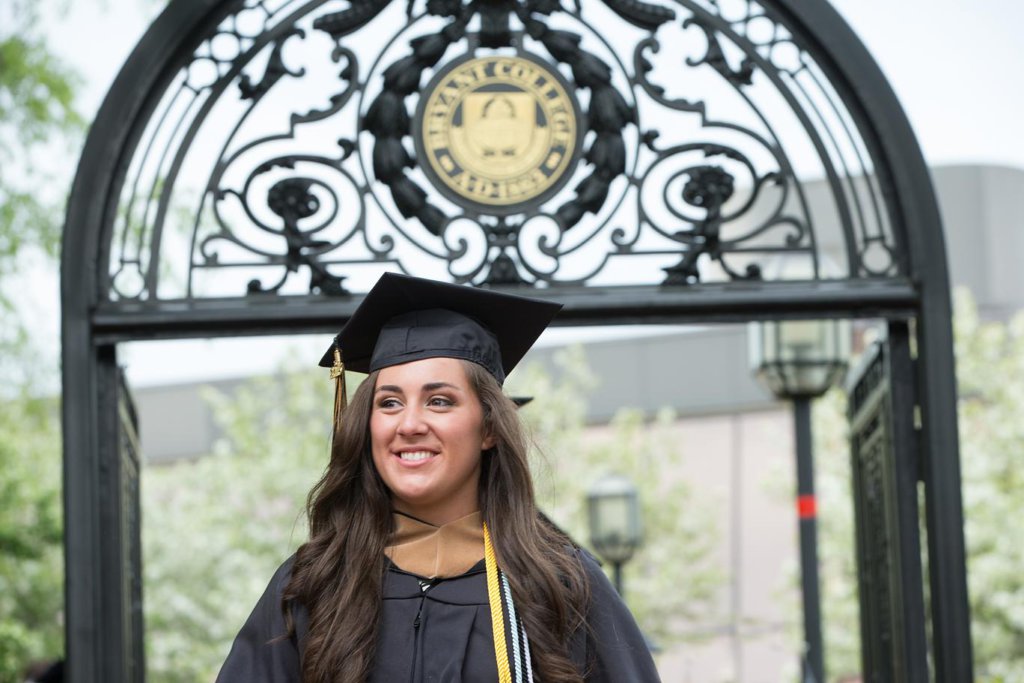
Kickstart your professional success and gain the know-how to make a difference at Bryant University. Source: Bryant University
Another strength of Bryant’s is how it prepares students for when they leave university, for there is value in fortitude and being able to overcome obstacles and challenges. Mathematics, for example, is a subject that is foundational for many career paths. “Mathematics is built upon the idea of understanding how to think about problems, how to put them in a quantitative context to be evaluated so appropriate decisions could be made. You have to understand not so much the mathematics itself, but a mathematical way of thinking about things,” Gorvett adds.
That is exactly how Bryant’s Mathematics department trains its students, by taking an abstract problem in the real world and making it concrete by modelling it mathematically. “Everyone has data, everyone needs that data analysed and so we prepare students not only to understand what to do with the data, but to interpret it,” says Gorvett.
Such an approach sets Bryant’s graduates apart not just in a competitive job market but in how they are helping build a more just, equitable, and inclusive world. “My courses provided me with the foundational knowledge and experience to earn a variety of professional certifications while still in college,” shares Jacob Mingola, who is now an actuarial assistant. “Now the work I’m doing is going to help people and their families, and I really like that.”
Graduate William Kelley agrees. “Actuarial Math isn’t even a program at most colleges, but Bryant has a really fantastic one,” he says. “Bryant has given me the ability to take a high-level look at things. To be innovative, you need to be able to see beyond what’s right in front of you. That’s one of the biggest things I’ve learned at Bryant: knowing how to make the biggest difference possible, whatever your role.”
To learn more about the courses the College of Arts and Sciences at Bryant University has to offer, click here.
Follow Bryant University on Facebook, YouTube, Twitter, LinkedIn, and Instagram.

